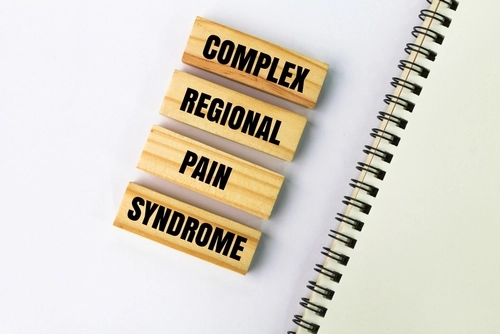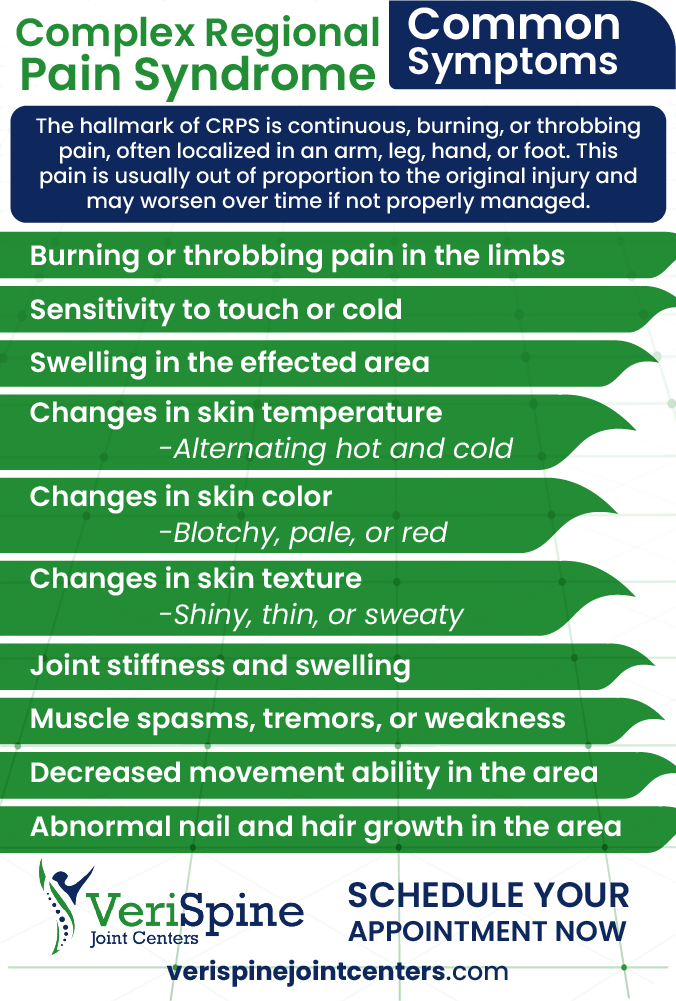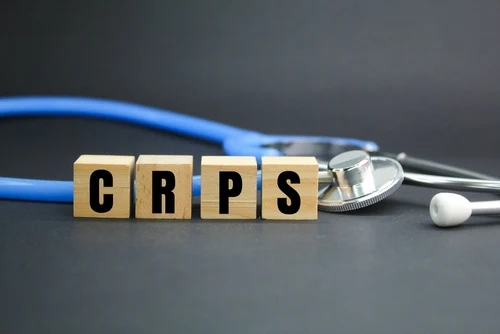Struggling with Severe, Persistent Pain? Get complex Regional Pain Syndrome Treatment and Relief at VeriSpine Joint Centers
Complex Regional Pain Syndrome (CRPS) is a debilitating and often misunderstood medical condition that affects the nervous system. The severe, persistent pain associated with CRPS can be disproportionate to the original injury, disrupting daily life, limiting mobility, and impacting mental well-being. For patients dealing with CRPS, even simple activities like walking, dressing, or working can become overwhelming.
At VeriSpine Joint Centers in Stockbridge, GA, our team of pain management specialists and medical professionals specializes in complex regional pain syndrome treatment. Whether your CRPS is related to a personal injury, workplace accident, or chronic condition, our experienced CRPS specialists provide comprehensive care tailored to your individual needs, guiding you through diagnosis, treatment, and recovery.
Take Control of Your CRPS with Expert Pain Management
Don’t let complex regional pain syndrome control your daily life. At VeriSpine Joint Centers, our pain management specialists and CRPS experts develop individualized treatment plans designed to reduce chronic pain, improve mobility, and restore function. By consulting with a dedicated CRPS specialist, you gain access to targeted interventions that are tailored to your unique condition, helping you regain independence and quality of life. Early action with a pain management specialist is critical to preventing the condition from worsening and maximizing recovery outcomes.
Fast, Targeted Interventions for Complex Regional Pain Syndrome
Complex regional pain syndrome can escalate quickly without proper care. Our team of CRPS specialists and pain management professionals provides fast, evidence-based interventions that address the root causes of your pain. Scheduling a consultation with a pain management specialist ensures that your treatment plan is customized, aggressive, and focused on meaningful results. Every day you delay care is a day CRPS can worsen — let our specialists act quickly to control symptoms and improve functionality.
Work With Specialists Who Understand Your Rights and Options
CRPS often arises from personal injury, workers’ compensation cases, or chronic conditions, making it essential to work with both medical and legal professionals who understand your needs. Our pain management specialists coordinate closely with trusted legal partners to document your case, provide thorough medical records, and advocate for your access to care. By working with a CRPS specialist, you ensure that your treatment aligns with your legal and insurance considerations, giving you peace of mind while focusing on recovery.
Immediate Access to Top CRPS Pain Management Specialists
VeriSpine provides prompt access to experienced pain treatment specialists who are trained specifically in complex regional pain syndrome. Our specialists perform thorough evaluations and create comprehensive treatment plans to address pain, restore mobility, and prevent long-term complications. With a dedicated CRPS specialist, you receive personalized guidance and treatment from the start, giving you the best chance to regain function and reduce suffering.
Comprehensive Treatment Plans Designed for Real Results
Our CRPS specialists combine advanced interventional procedures, physical therapy, and ongoing monitoring to deliver measurable outcomes for patients suffering from complex regional pain syndrome. Each pain management specialist at VeriSpine develops a tailored plan that prioritizes your recovery, focusing on reducing pain, improving daily functionality, and supporting long-term wellness. By working with a dedicated CRPS specialist, you benefit from a coordinated, expert-driven approach that addresses both the physical and functional challenges of this condition.
What Is Complex Regional Pain Syndrome (CRPS)?
Complex Regional Pain Syndrome (CRPS) is a chronic pain condition typically affecting a limb after an injury, surgery, stroke, or heart attack. While the initial event may be relatively minor, CRPS can cause disproportionate and persistent pain. It is characterized by a combination of sensory, motor, autonomic, skin, and bone abnormalities.
CRPS is classified into two types:
- Type I (previously known as Reflex Sympathetic Dystrophy) occurs without confirmed nerve injury.
- Type II (formerly called Causalgia) is associated with a distinct nerve injury.
What sets CRPS apart from other types of pain is its intensity and complexity. The nervous system essentially “misfires,” sending exaggerated pain signals to the brain. Even light touches, changes in temperature, or movements can trigger unbearable discomfort.
While CRPS can sometimes resolve on its own, many cases become chronic and progressively worse without appropriate Complex Regional Pain Syndrome treatments. Early intervention is critical. Our goal at VeriSpine Joint Centers is to reduce pain, restore function, and help patients regain control over their lives.
What Are the Symptoms of CRPS?
The hallmark of CRPS is continuous, burning, or throbbing pain, often localized in an arm, leg, hand, or foot. This pain is usually out of proportion to the original injury and may worsen over time if not properly managed.
Complex Regional Pain Syndrome can cause a range of other symptoms. Patients may notice their affected limb is swollen, extremely sensitive to touch, or changes color and temperature unpredictably. Over time, the muscles and joints may become stiff or weak, leading to reduced mobility and function.
Common symptoms of CRPS include:
- Continuous burning or throbbing pain, often in the limb
- Sensitivity to touch or cold
- Swelling in the affected area
- Changes in skin temperature — alternating between sweaty and cold
- Changes in skin color — blotchy, pale, or red
- Changes in skin texture — shiny, thin, or excessively sweaty
- Joint stiffness and swelling
- Muscle spasms, tremors, or weakness
- Decreased ability to move the affected body part
- Abnormal nail and hair growth patterns in the affected area
At VeriSpine Joint Centers, our doctors take the time to listen to your symptoms, thoroughly evaluate your condition, and design a treatment plan that addresses your needs.
What Causes Complex Regional Pain Syndrome?
The exact cause of Complex Regional Pain Syndrome remains unclear, but it is believed to involve a combination of nerve injury, inflammation, and abnormal immune system responses. CRPS typically develops after a traumatic event such as a fracture, surgery, sprain, or soft tissue injury. However, the pain and dysfunction it causes are much more severe than would typically be expected from the initial trauma.
Many experts believe Complex Regional Pain Syndrome happens when the nervous system sends excessive pain signals or overreacts to these signals. Inflammation from immune system overreaction may also play a key role.
Potential triggers and risk factors for CRPS include:
- Fractures or broken bones
- Surgical procedures (especially limb surgeries)
- Soft tissue injuries (sprains, burns, or cuts)
- Nerve damage or trauma
- Stroke or heart attack
- Prolonged limb immobilization (e.g., in a cast or sling)
- Psychological stress or post-traumatic stress
- Genetic predisposition or autoimmune conditions
How Is CRPS Diagnosed?
Diagnosing Complex Regional Pain Syndrome can be challenging because there is no single definitive test for the condition. Instead, doctors must evaluate your symptoms, medical history, and physical exam findings, and rule out other potential causes.
During a physical exam, doctors will check for changes in skin color, temperature, swelling, range of motion, and pain sensitivity. They may recommend various diagnostic tests, including:
- Bone Scan: May reveal abnormal blood flow or bone metabolism in the affected limb.
- X-rays: Can show patchy bone loss, especially in chronic cases.
- MRI or CT Scans: To rule out other conditions and identify tissue or nerve abnormalities.
- Thermography: Measures skin temperature differences between limbs.
- Electrodiagnostic Testing (EMG/NCS): Helps evaluate nerve function.
Our team at VeriSpine Joint Centers has experience treating CRPS and other conditions that can cause chronic pain, such as Fibromyalgia and Cervical Radiculopathy.
Complex Regional Pain Syndrome Treatments
At VeriSpine Joint Centers, we understand that each patient’s journey with pain is unique. We combine physical therapy and rehabilitation, advanced interventional pain procedures, and regenerative medicine to tailor Complex Regional Pain Syndrome treatment plans for your needs.
Medications
While medications may be used to manage symptoms of CRPS, VeriSpine Joint Centers focuses on minimizing pharmaceutical dependency whenever possible. Still, medications can play a useful role in early or acute CRPS, or when other Complex Regional Pain Syndrome treatments alone aren’t sufficient.
Medications doctors may prescribe for CRPS include:
- NSAIDs (e.g., ibuprofen, naproxen) – for reducing inflammation and pain.
- Corticosteroids – to address severe inflammation, especially early in the disease.
- Antidepressants (e.g., amitriptyline, duloxetine) – for nerve pain modulation.
- Anticonvulsants (e.g., gabapentin, pregabalin) – to reduce nerve pain sensitivity.
- Bisphosphonates – to slow bone changes seen in some chronic CRPS cases.
- Topical agents (e.g., lidocaine patches or capsaicin cream) – for localized pain.
Physical Therapy
Physical therapy is a crucial part of Complex Regional Pain Syndrome treatment. CRPS often causes patients to avoid using the affected limb due to pain, which can worsen stiffness, weakness, and loss of function over time.
Our physical therapists create custom exercise programs tailored to your current abilities and pain level. The focus is on improving mobility, strength, circulation, and desensitization of the affected area. Early and consistent participation in physical therapy has been shown to significantly improve long-term outcomes in CRPS patients.
Pain Relief Procedures
For patients whose symptoms do not respond adequately to medications or therapy alone, interventional pain procedures can provide meaningful relief. These minimally invasive treatments target the nerves or pathways involved in CRPS to interrupt the pain cycle and allow other forms of therapy to work more effectively.
- Trigger Point Injections: A trigger point injection uses a local anesthetic, sometimes with steroids, to relieve muscle pain and tension in a specific area.
- Sympathetic Nerve Blocks: This procedure involves injecting medicine near certain nerves in the neck or lower back to reduce pain and improve blood flow.
- Spinal Cord Stimulation (SCS): A small device placed near the spine sends electrical signals that block pain from reaching the brain.
Why Choose VeriSpine Joint Centers for Complex Regional Pain Syndrome?
When facing complex regional pain syndrome (CRPS), you need more than general care — you need dedicated CRPS specialists and expert pain management specialists who understand the intricacies of chronic nerve pain. At VeriSpine Joint Centers, our team delivers targeted CRPS treatment plans designed to reduce pain, restore function, and improve quality of life. From your initial consultation with a pain specialist to advanced interventional procedures, our experts provide hands-on, patient-focused guidance every step of the way.
Expert CRPS Specialists Committed to Recovery
Our CRPS specialists are trained to evaluate and treat every aspect of complex regional pain syndrome, from severe limb pain and nerve dysfunction to mobility limitations. By leveraging advanced diagnostics and personalized care, our pain specialists ensure each treatment plan is tailored to your specific symptoms and condition.
Pain Management Specialists for Injury-Related Cases
VeriSpine’s pain management specialists have extensive experience treating CRPS resulting from personal injury, workers’ compensation claims, and federal OWCP cases. We work closely with medical and legal teams to ensure that all documentation and treatment records support both your recovery and any legal proceedings.
Integrated Care From Consultation to Advanced Treatments
From your first appointment to ongoing therapies, our CRPS specialists coordinate all aspects of care. This includes physical rehabilitation, medication management, interventional procedures, and regenerative therapies, ensuring that every pain management specialist on our team is aligned to maximize your recovery outcomes.
Collaboration With Legal and Insurance Professionals
For patients with CRPS from accidents or workplace injuries, coordinating with lawyers is essential. Our pain treatment specialists provide detailed medical documentation and expert insight to support claims and insurance processes. Working with VeriSpine ensures you have a team of specialists advocating for both your medical and legal needs.
Contact VeriSpine Pain Management Specialists Today
Early diagnosis and specialized treatment from CRPS and pain management specialists can dramatically improve outcomes for those suffering from Complex Regional Pain Syndrome. At VeriSpine Joint Centers, our team of pain treatment specialists provides expert evaluation, advanced interventional procedures, and personalized care plans to help you regain control over your life.
Comprehensive Care from CRPS Specialists
Our pain management specialists at VeriSpine Joint Centers focus exclusively on treating patients with complex regional pain syndrome and related chronic pain conditions. Each specialist evaluates your condition thoroughly, identifies the underlying nerve or tissue issues contributing to CRPS, and develops a tailored care plan. By combining interventional procedures, rehabilitation, and ongoing monitoring, our specialists ensure that every patient receives the most effective, evidence-based treatments available.
Expert Guidance for Personal Injury and Workers’ Compensation Cases
For patients dealing with CRPS resulting from personal injury or workers’ compensation claims, our pain treatment specialists provide critical documentation, medical reports, and clinical guidance to support your case. These specialists work closely with attorneys and insurance representatives to ensure your medical needs and legal rights are fully represented. By integrating legal coordination with medical care, our CRPS specialists help maximize your compensation while prioritizing your recovery and relief.
Schedule a Consultation With a Pain Management Specialist
Taking action early is crucial for long-term recovery. Contact VeriSpine Joint Centers today to schedule a consultation with one of our dedicated pain management specialists. During your visit, a specialist will review your medical history, evaluate your symptoms, and outline a personalized treatment plan designed to alleviate pain, restore function, and improve quality of life. Don’t wait—getting the right CRPS specialists involved now can make all the difference in your recovery journey 678-782-7999




